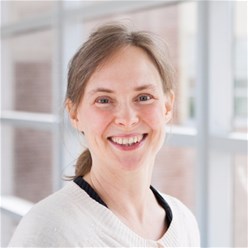Sustainable development through work-integrated learning and collaboration
The university collaborates with partners who work with us to create knowledge that contributes to sustainable development.
Knowledge through collaboration and work-integrated learning are the points of departure and the fundamental concepts in which the university’s vision is grounded, and they thus permeate all that we do throughout the entire university. This means that the university sees a need, takes a stand, takes the initiative and becomes a driving force for sustainable development. The university takes action and works together with its surroundings, which means that we always seek collaboration outside the academic sphere. This gives us a good basis for creating the partnerships that are needed for achieving sustainable societal development and as it is expressed in Objective 17 of Agenda 2030 for the global level, implementation and global partnership, but that for the agenda’s realization there need to be partnerships at all levels of society.
To be able to contribute to a sustainable development through collaboration, what we collaborate on, and with whom, are important, whereby the points of departure are the global goals, democracy, and academic freedom. Especially prioritised areas among the global goals are limiting climate change as well as promoting gender equality and a level playing field.
Objectives
- Sustainable development is a part of the university’s programmes and research with work-integrated learning.
- Sustainable development is integrated into the university’s collaboration on education, research, and support processes.
- The university collaborates on issues of sustainability and with partners who want to contribute to sustainable development.
Strategies
- Integrating the aspect of sustainable development into the university’s Quality Assurance System for research and education.
- Integrating the aspect of sustainable development into the WIL-certification of programmes.
- Formulating sustainability criteria for choosing prioritized collaboration partners.
- Integrating sustainable development as a part of our communication strategy for WIL.
- Collaborating with students, proprietors, the city of Trollhättan, and other actors in our development of a sustainability project.
Responsibility
- The Vice Chancellor and the Pro-Vice-Chancellor for WIL have the overarching responsibility.
- Department heads have responsibility at the departmental level.
- The programme boards, subject committees, and all educators, are responsible for integration into programmes and together with local collaboration partners
- The Research and Education Board and the department boards are responsible for development, support, and follow-up.
Contact



